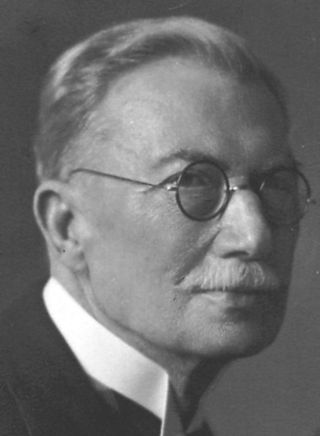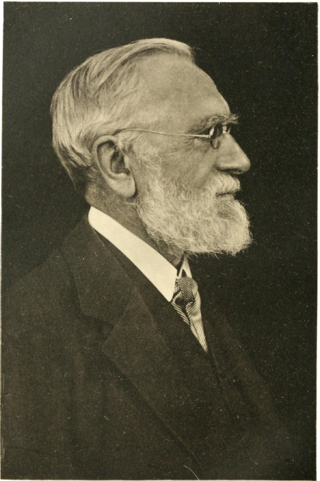Related Research Articles

August Schleicher was a German linguist. His great work was A Compendium of the Comparative Grammar of the Indo-European Languages in which he attempted to reconstruct the Proto-Indo-European language. To show how Indo-European might have looked, he created a short tale, Schleicher's fable, to exemplify the reconstructed vocabulary and aspects of Indo-European society inferred from it.
Insular Celtic languages are the group of Celtic languages of Brittany, Great Britain, Ireland, and the Isle of Man. All surviving Celtic languages are in the Insular group, including Breton, which is spoken on continental Europe in Brittany, France. The Continental Celtic languages, although once quite widely spoken in mainland Europe and in Anatolia, are extinct.

Friedrich Kluge was a German philologist and educator. He is known for the Kluge etymological dictionary of the German language, which was first published in 1883.

Julius Pokorny was an Austrian-Czech linguist and scholar of the Celtic languages, particularly Irish, and a supporter of Irish nationalism. He held academic posts in Austrian and German universities.

Otto Dempwolff was a German physician, linguist and anthropologist who specialized in the study of the Austronesian language family.
German studies is the field of humanities that researches, documents and disseminates German language and literature in both its historic and present forms. Academic departments of German studies often include classes on German culture, German history, and German politics in addition to the language and literature component. Common German names for the field are Germanistik, Deutsche Philologie, and Deutsche Sprachwissenschaft und Literaturwissenschaft. In English, the terms Germanistics or Germanics are sometimes used, but the subject is more often referred to as German studies, German language and literature, or German philology.

Robert Stephen Paul Beekes was a Dutch linguist who was emeritus professor of Comparative Indo-European Linguistics at Leiden University and an author of many monographs on the Proto-Indo-European language.
Rudolf von Raumer was a German philologist and linguist, known for his extensive research of the German language. He was the son of geologist Karl Georg von Raumer.
Harald Haarmann is a German linguist and cultural scientist who lives and works in Finland. Haarmann studied general linguistics, various philological disciplines and prehistory at the universities of Hamburg, Bonn, Coimbra and Bangor. He obtained his PhD in Bonn (1970) and his habilitation in Trier (1979). He taught and conducted research at a number of German and Japanese universities, and is a member of the Research Centre on Multilingualism in Brussels. He is Vice-President of the Institute of Archaeomythology and director of its European branch.

August Leskien was a German linguist active in the field of comparative linguistics, particularly relating to the Baltic and Slavic languages.
Heinrich Friedrich Zimmer was a German Celticist and Indologist.
Renward Brandstetter was a Swiss philologist and linguist who published about medieval and modern Swiss dialects language and the older Swiss theatre history and studied the insular Malayo-Polynesian languages.
Micheál Ó Conghaile is an Irish-language writer who lives in Indreabhán, County Galway, Ireland. He was born on the island of Inishtravin in Conamara and was raised in an Irish-speaking community.
Gottfried Baist was a German Hispanist and Romance studies scholar.
Wolfram Euler is a German historical linguist and Indo-Europeanist.

Bernhard Gröschel was a German linguist and slavist.
Robert Bleichsteiner was an Austrian ethnologist.
Herrmann Rudolf Jungraithmayr is an Austrian Africanist and retired university professor. Until 1996, he was the chair of African linguistics at the Johann Wolfgang Goethe University in Frankfurt am Main, Germany.
Helmut Keipert is a German Slavist and linguist. He is professor emeritus for Slavic philology at the University of Bonn.
Alfred Bammesberger is Professor Emeritus of English and Comparative Linguistics at the Catholic University of Eichstätt.
References
- 1 2 3 O’Donoghue, David (February 2013). "Glaoch ón Tríú Reich ('A call from the Third Reich')". History Ireland . Retrieved 3 May 2018.
- ↑ "SKSK Committee". Studienhaus für Keltische Sprachen und Kulturen. 20 March 2017. Retrieved 3 May 2018.
- ↑ "Wigger, Arndt". DIAS.